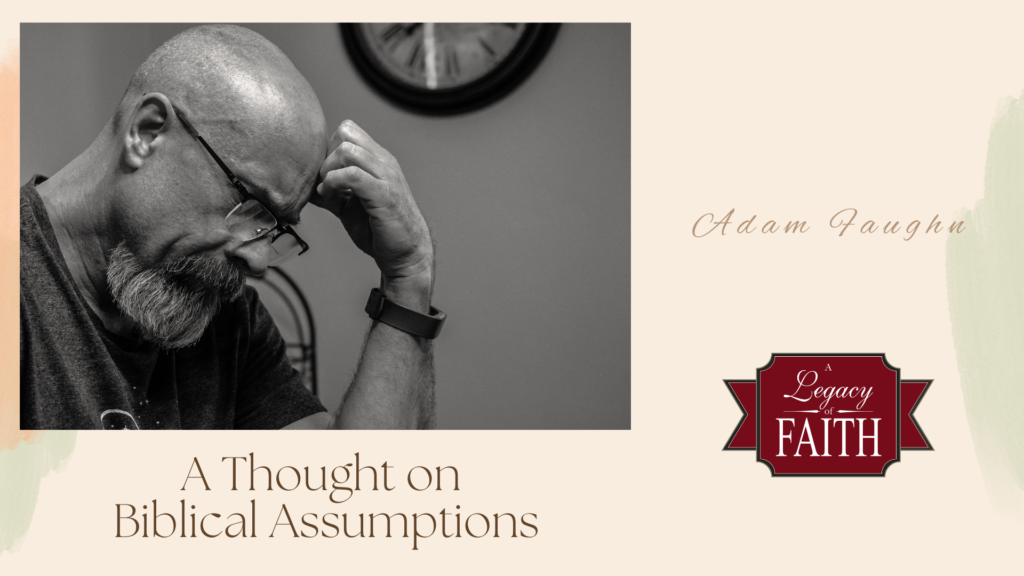A Thought on Biblical Assumptions
There are places in the Bible where the text leaves part of a story untold. We are left to think of some of the details and fill in some gaps as to why certain things happened the way they did.
However, sometimes people assume something and “everyone” agrees on it, but then they don’t think about it anymore. And…it’s possible those assumptions may not be true.
Let me give you an example I was thinking about recently.
In Esther 6:1, we are told that the king, Ahasuerus, could not sleep. The Hebrew is an idiom that basically says that sleep fled away from him. If you are familiar with this part of Esther, you will recall that the king had a book brought in to be read. In full, Esther 6:1 reads,
On that night the king could not sleep. And he gave orders to bring the book of memorable deeds, the chronicles, and they were read before the king.
I don’t know how many times I have heard people go through the details of the account of Esther and just simply state that the king had these records read in order to help him fall asleep. That’s just the assumption and “everyone” agrees with it. In fact, it is sometimes put in there as a “fact” of the story.
However, where does Esther 6:1 actually say that these books were read in order to help the king fall asleep? It’s just not there. Is it possible? Yes…and some of you who don’t like history probably think that’s why he had it done.
But is it a sure thing? Not in the least. Maybe the king could not sleep, so he decided to get some work done. You’ve probably done that before. Maybe he thought that his lack of sleep was due to some bad mood, and reading some records of victories or other exploits would combat that bad mood.
The point is, we do not know why he had the historical records read.
Now, is this that big of a deal? In the grand scheme of things, probably not. But I wanted to write this because it does illustrate something that is important. If the Bible does not reveal something specifically, we need to always keep our thinking caps on. Reading accounts like this one can come even more alive if we just do not assume we know why something was done and, instead, read it from different perspectives at times.
Here are a couple of other assumptions people often make (and even accept as “fact”) that are simply not stated in Scripture:
- “It had never rained before the flood in Noah’s day.” While it is possible this is true, the Bible never states that specifically.
- “There were three wise men.” Nearly every year, preachers try to debunk this one. The wise men–who are never named or numbered–brought three gifts, but we do not know how many there were.
Don’t fall into assumptions as facts. Let God reveal what He wants to reveal through the pages of the Bible, and then read with an open and thoughtful mind. You’ll be glad you did!
AUTHOR: Adam Faughn
